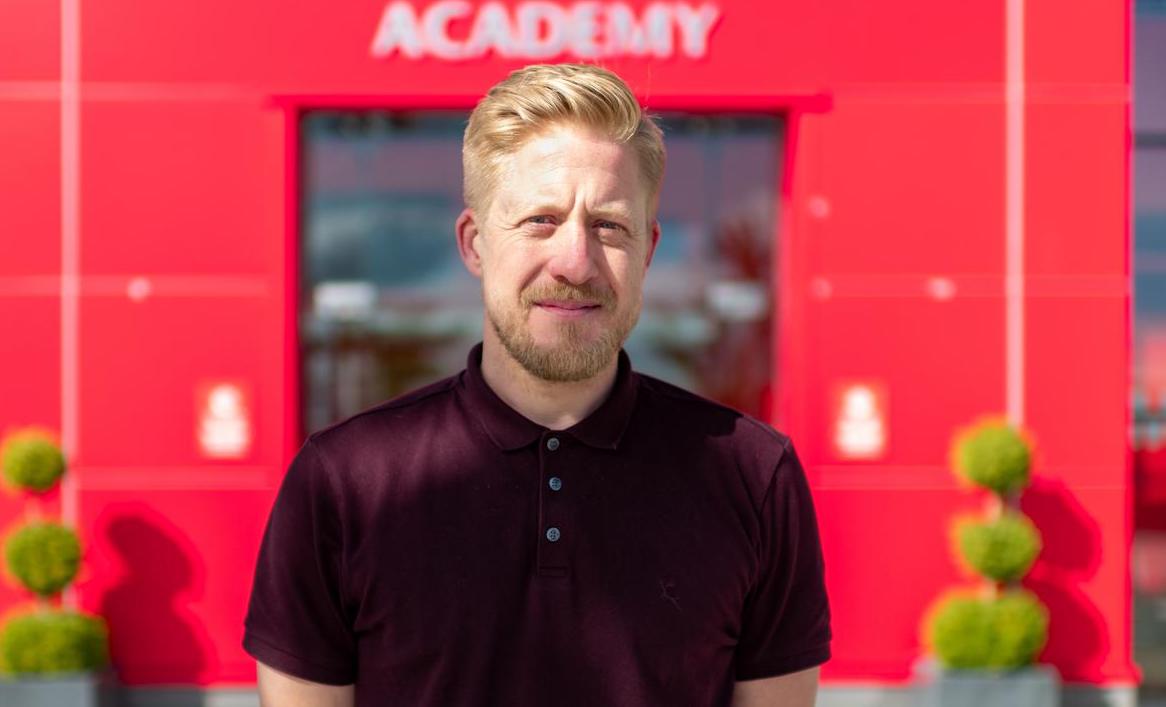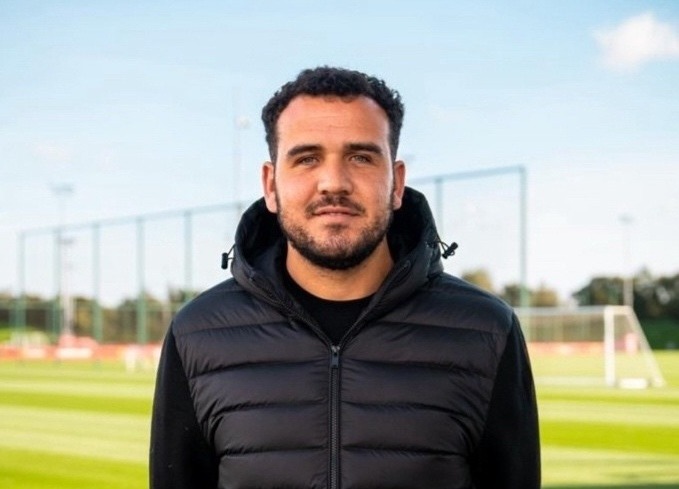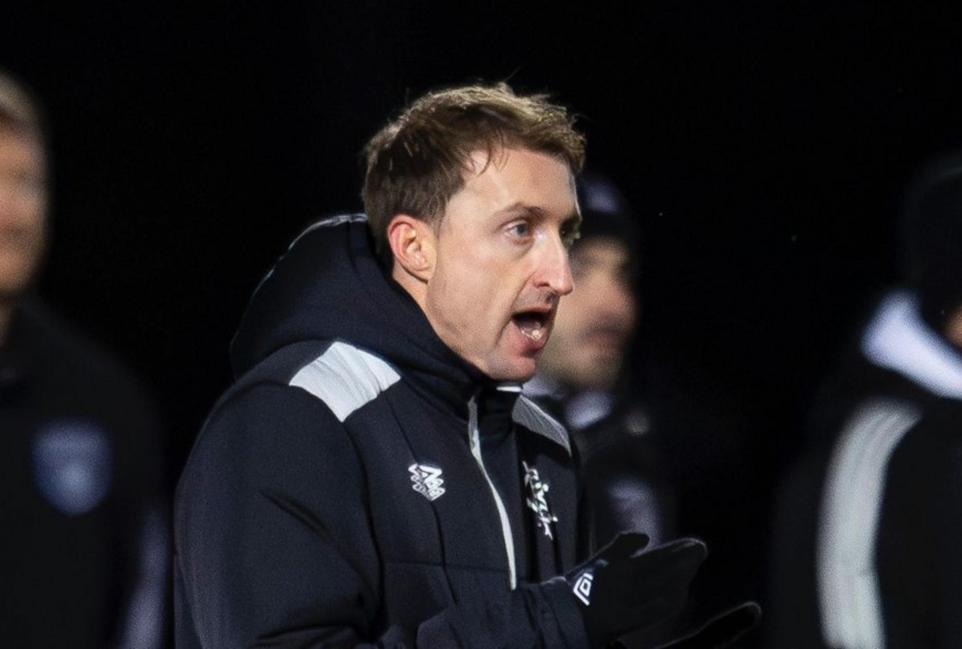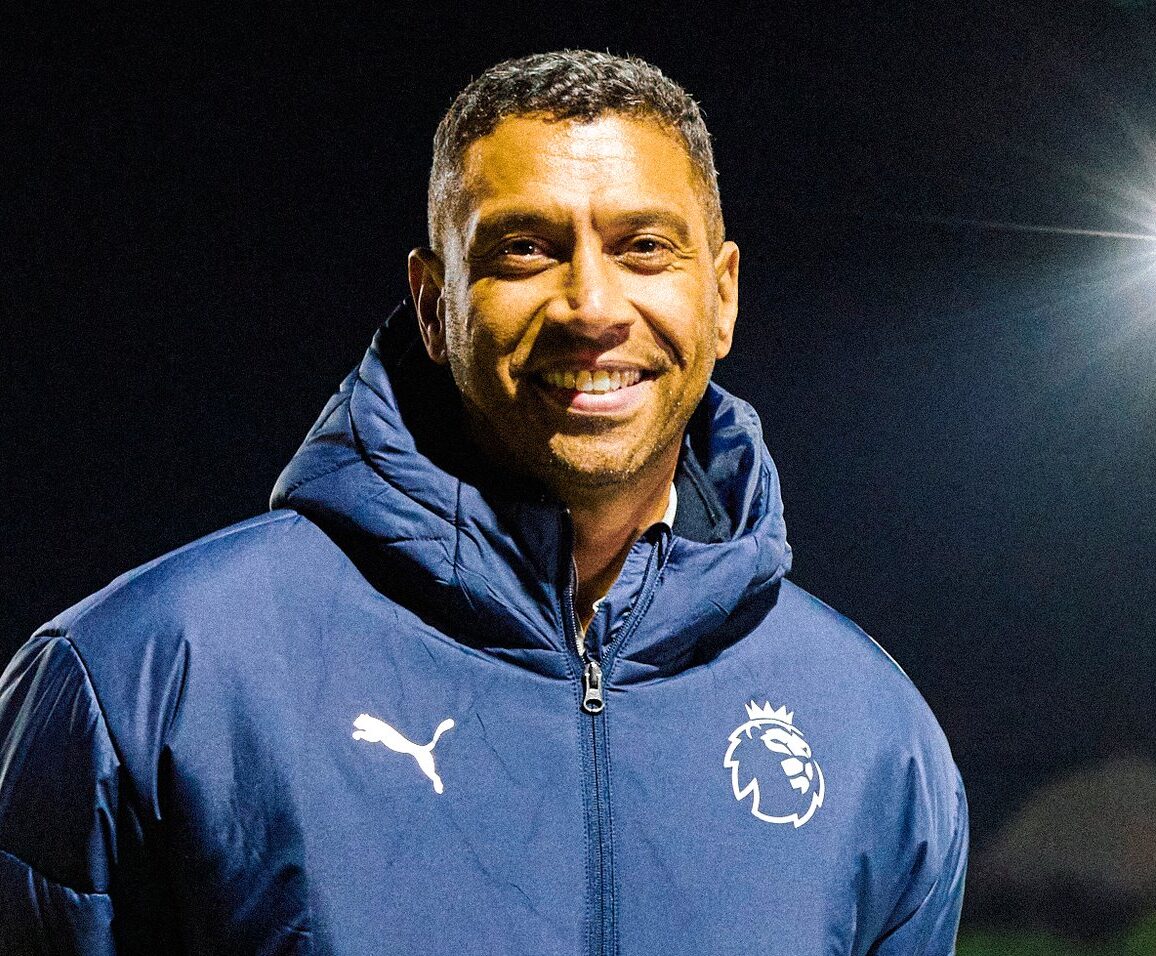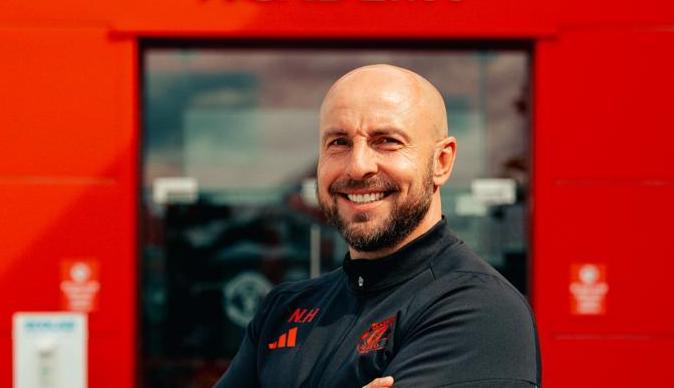
Neil Harris: Development lessons from 21 years at Manchester United
Written by
Training Ground Guru
November 4, 2024
Neil Harris worked for Manchester United for 21 years and helped in the development of players including Scott McTominay, Anthony Elanga and Axel Tuanzebe, all of whom sent him personal messages of thanks when he departed in the summer.
Harris, himself a former United Youth Player, started as a Development Centre Coach with the club and went on to become Lead Youth Development Phase Coach. In an interview with our friends at the PFSA, the leading providers of scouting and analysis courses to clubs in the UK and overseas, Harris outlined lessons he had learned during two decades with one of the leading Academies in world football.
How did you get into football coaching?
Neil Harris: My journey into coaching began quite unexpectedly. I was a youth player for Manchester United, Bolton Wanderers and Scunthorpe United, but injuries stopped my career before it had really started. After this, my son’s grassroots team was on the brink of disbanding because they didn’t have a coach, so I stepped in.
During one session, a Manchester United scout was watching on and he said I had a calm and instructional approach with the players. He introduced me to United’s Assistant Academy Manager, Tony Whelan, who encouraged me to pursue the UEFA B Part One qualification, which was a vital step towards starting a coaching career with the club.
I successfully completed this and the usual waiting period before advancing to Part Two was 18 months, but my tutor advised me to proceed immediately. During this time (August 2003), I began working as a Development Centre Coach for Manchester United, taking sessions in the evenings and on Sundays at The Cliff.
By 2005, I was based at Carrington, primarily focusing on the U13s, while also coaching up to the U16s. I obtained my UEFA A in Scotland in 2018 and the FA Advanced Youth Coaches Award in 2021.
Were there any key experiences that shaped your development as a coach?
From the outset, my approach revolved around crafting sessions that are enjoyable and challenging. I plan each session by asking the question, ‘Would I have enjoyed this as a player?’ By the end of the session, I want the players to be wanting more and eagerly anticipating the next one.
Sessions should be stimulating and progressive, consistently challenging the top players while remaining accessible to those who are slightly less advanced. I achieve this through in-session streaming when necessary, which allows for tailored challenges. I have also always prioritised the individual needs of each player. My goal is to enhance their strengths and address areas that need improvement. By focusing on individual development, the team naturally improves as a result of this personalised approach.
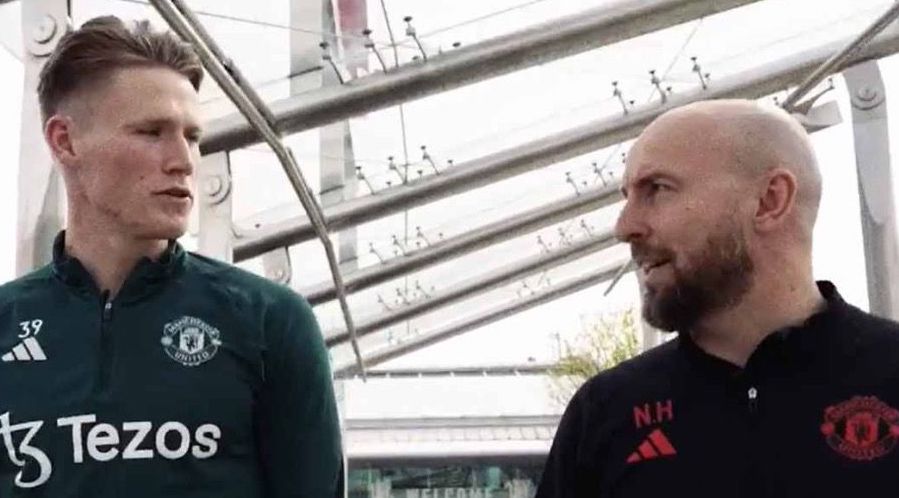
Neil Harris (right) with former charge Scott McTominay
Did you have any significant mentors in your early coaching days?
Tony Whelan, who was Assistant Academy Manager when I started at United and is now Academy Programme Advisor, was both a mentor and confidante during my time at the club. As an ex-pro for Manchester United and Manchester City, Tony transitioned into coaching after a career as a social worker. His unique background has deeply influenced my understanding of coaching and holistic development.
He has continuously emphasised the importance of empowering young players to realise their full potential while nurturing their passion for football.
What challenges did you face? And how did you overcome them?
I was incredibly fortunate to start my coaching career at Manchester United, surrounded by seasoned football professionals. The guidance and mentorship I received from Tony Whelan, Jim Ryan, Paul McGuinness and later Brian McClair was invaluable. I was granted the freedom to coach without the fear of repercussions, which allowed me to explore different methods and to develop my coaching style.
Mistakes were seen as opportunities to learn rather than failures, which fostered innovation and personal growth. The focus was consistently on player development rather than match results. We were never asked about scores, only about which players had excelled. This player-centric approach emphasised long-term growth.
What key attributes do you look for in talent identification?
Do they possess a stand-out quality that sets them apart from others in the group or game I’m observing? This exceptional ability, often referred to as a super strength, could manifest in skills like ball handling, crossing, long-range passing, or one-on-one defending. Is there something they excel at that others don’t?
At the highest level, decision-making is paramount. Are they technically adept, enabling them to consistently make the right choices? I seek individuals who excel at executing simple tasks with precision and have the courage to innovate at opportune moments. Additionally, what is their capacity to absorb and retain information? This is vital, because being a quick learner is crucial for continuous development.
Do they exhibit traits necessary for a modern Premier League player? Are they athletically and physically prepared to handle the demands of today’s game? While they don’t all need to be tall and athletic, they must understand the game and their role within it. They should be technically skilled to meet the game’s speed and demands, able to think a pass ahead of others, and capable of handling the ball in various situations.
How do elite Academies such as Manchester United support the growth of young talent?
‘High challenge, high support’ is a fundamental principle in coaching within an elite Academy. This approach emphasises creating an individualised development pathway, ensuring that each player’s strengths and growth areas are both challenged and nurtured. This allows them to reach their full potential, whether their journey leads to the Premier League or other leagues.
Elite Academies feature robust Multi-Disciplinary Teams (MDT), ensuring that every aspect of a player’s development is addressed. By leveraging the diverse expertise of the MDT, coaches can effectively highlight strengths and focus on areas for development, providing comprehensive support throughout the process.
When designing a session, I prioritise technique, skill, decision-making, competition and fun. During delivery, I ensure smooth progressions from start to finish, using a constraints-led approach to provide appropriate challenges for all skill levels within the group.
What role do psychological and social factors play?
It is crucial for a coach to use their skill and experience to recognise that each player is unique. Understanding their home and social environments is vital and this insight should be gained subtly, while trust is established. Once trust is secured, psychological and social assessments – alongside technical, tactical and physical models – can be integrated into a player’s development plan.
How do you ensure that the development pathway within the Academy aligns with the first team playing style?
During my time with Manchester United’s Academy, our focus was less on aligning with the first team’s playing style and more on developing individual players. We emphasised assessing whether players possessed the necessary skills to excel in their specific positions across various age groups or in multiple roles, with a strong focus on the player’s development syllabus.
Are there common challenges that young players face during their development?
There are many, including growth, maturation, short and long-term injuries, external influences and unrealistic expectations. In elite Academies, there is also the pressure of competitors being recruited for the same position.
In my view, addressing these challenges requires honesty – with both the player and their parents or guardians. Difficult conversations are necessary, as offering false hopes or being less than truthful will only create further issues later. Approaching setbacks with empathy and understanding ensures that a player can either progress within the club or pursue a career elsewhere with greater confidence and awareness.
Feedback is immensely important and how it’s executed is crucial. The coach’s skill and experience is key – they must know how to connect with each player to understand how they receive and provide feedback. Together, they can agree on a personalised learning plan, ensuring that its success is both measurable and attainable.
How does a player’s family and background influence their development?
In my experience, it plays a significant role up to around U15. After that, other relationships both inside and outside the Academy start to shape a player’s growth. Until U14, there is a three-way dynamic between the player, coach, and family. This shifts at U15, where the relationship evolves more towards the player, peers and coach, with the family still holding influence, albeit less prominently.
I believe that unrealistic family expectations are among the most detrimental factors to a player’s development. It is crucial for coaches to recognise and address these issues with honesty and empathy early in the process to prevent greater challenges along the way.
Follow Us
For latest updates, follow us on X at @ground_guru
